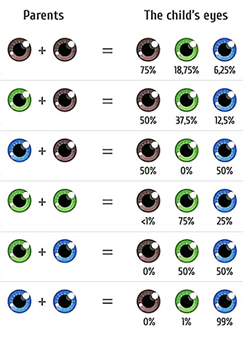Ethics of Embryos
Choosing Traits for Your Unborn Child
Colored contacts, dying your hair, plastic surgery, etc. The list goes on and on of ways self-improvement is used in everyday life. Medical technology is now allowing you to be 99 percent sure your children have the same baby blue eyes as your husband, but is it ethical? I don’t think that putting your child’s health at risk for a physical trait is.
Designer babies are becoming more and more popular among women and parents when becoming pregnant through implantation. According to MedScape, the method of selecting an embryo with the desired set of traits due to genetic profiling is known as Preimplantation Genetic Diagnosis (PGD). Although the risks of PGD are minimal because no modification of genetic matter occurs, controversy still comes with this method. This method allows embryos to be exposed to discrimination before they’ve even taken their own first breath of air.
The other method used is CRISPR. According to Live Science, the same way PGD is a method of selecting your child’s traits, CRISPR is a genetic engineering tool that uses a sequence of DNA and its associated protein to edit the base pairs of a gene. This remains an experimental technique in which scientists and doctors are worried that it may impact non-target genes and create unintended consequences. ABC News talked to fertility Dr. Jeffery Steinberg where he said he cannot promise people will get their selections but claims he can dramatically increase the probability. Although the government doesn’t have the right to legislate how parents handle their children’s DNA, parents are responsible for their children. States and governments have banned this type of gene editing on live human embryos for this reason. Born or unborn, risking a child’s livelihood to change their appearance can be considered irresponsible. Although unlike botox or plastic surgery these traits will be passed on and affect many generations to come and the ethics of consent is rarely mentioned. When getting botox, or a breast reduction, you sign waivers saying that you consent to this procedure. An embryo can not consent.
Before making a decision like this for your unborn child make sure to inform yourself of the risks and rewards of these lifelong implications before it’s too late.
Catelyn Thrush, Grade 12. Interests/ hobbies include softball, NHS, skiing/snowboarding, and hanging out with friends and family. Catelyn Thrush plans...










